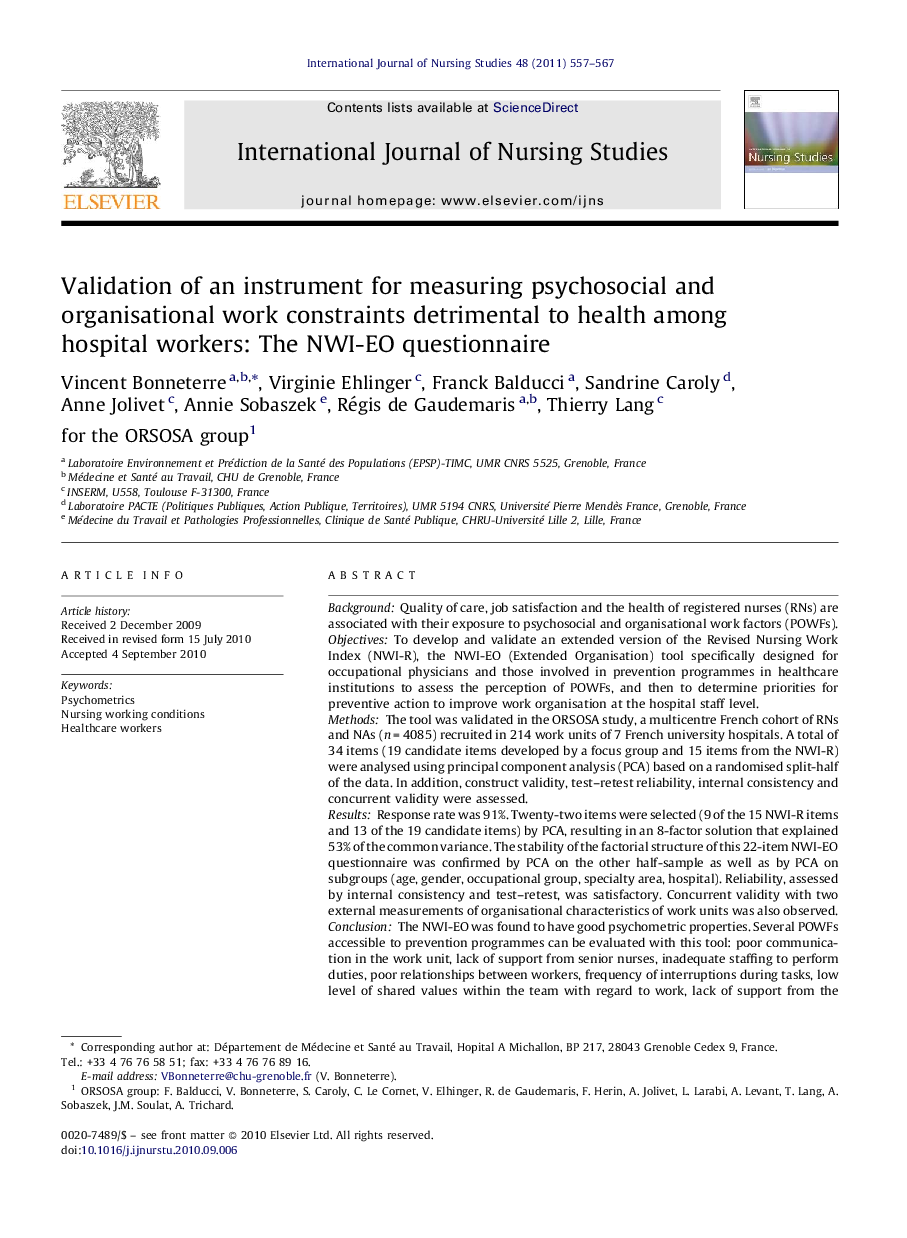| Article ID | Journal | Published Year | Pages | File Type |
|---|---|---|---|---|
| 1076685 | International Journal of Nursing Studies | 2011 | 11 Pages |
BackgroundQuality of care, job satisfaction and the health of registered nurses (RNs) are associated with their exposure to psychosocial and organisational work factors (POWFs).ObjectivesTo develop and validate an extended version of the Revised Nursing Work Index (NWI-R), the NWI-EO (Extended Organisation) tool specifically designed for occupational physicians and those involved in prevention programmes in healthcare institutions to assess the perception of POWFs, and then to determine priorities for preventive action to improve work organisation at the hospital staff level.MethodsThe tool was validated in the ORSOSA study, a multicentre French cohort of RNs and NAs (n = 4085) recruited in 214 work units of 7 French university hospitals. A total of 34 items (19 candidate items developed by a focus group and 15 items from the NWI-R) were analysed using principal component analysis (PCA) based on a randomised split-half of the data. In addition, construct validity, test–retest reliability, internal consistency and concurrent validity were assessed.ResultsResponse rate was 91%. Twenty-two items were selected (9 of the 15 NWI-R items and 13 of the 19 candidate items) by PCA, resulting in an 8-factor solution that explained 53% of the common variance. The stability of the factorial structure of this 22-item NWI-EO questionnaire was confirmed by PCA on the other half-sample as well as by PCA on subgroups (age, gender, occupational group, specialty area, hospital). Reliability, assessed by internal consistency and test–retest, was satisfactory. Concurrent validity with two external measurements of organisational characteristics of work units was also observed.ConclusionThe NWI-EO was found to have good psychometric properties. Several POWFs accessible to prevention programmes can be evaluated with this tool: poor communication in the work unit, lack of support from senior nurses, inadequate staffing to perform duties, poor relationships between workers, frequency of interruptions during tasks, low level of shared values within the team with regard to work, lack of support from the administration, and changes in planned vacations and time off. We believe the NWI-EO is a useful tool for assessing POWFs among RNs and NAs in order to determine priorities for preventive action to improve work organisation at the unit level.
